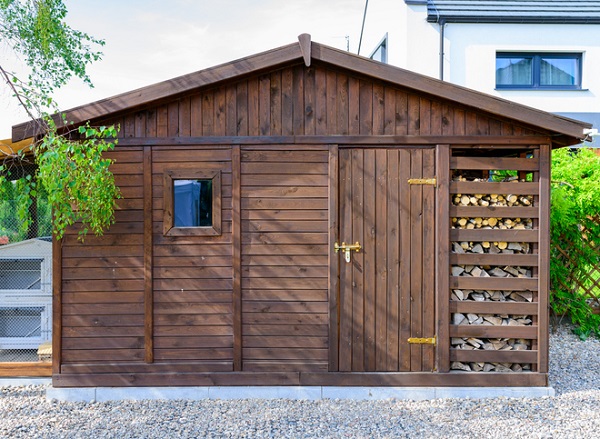What to Consider When Building a Shed Base
Reading time: 4 minutes
Building a shed base requires some forward planning to ensure you get the best possible results. The first thing to consider is location:
-
Access – Make sure all sides of your shed are accessible by cutting back any obstructing trees or bushes, allowing at least 12” all around and 36”-48” above the roof.
-
Natural light and views – You can make the most of natural light by placing your garden building in a south-facing position.
-
Electrical supply - If you plan to use the shed as a workshop, having an electrical supply in or near the building will make things easier when working with corded tools.
-
Planning permission – This is not always necessary, unless you want to build a larger shed than normal or live in a conservation area, then it’s a good idea to check with your local planning authority.
How high should a shed be off the ground?
If you live in a particularly flat area, avoid building your shed base in a place where water can collect. This may cause the base to lose its strength and deteriorate over time. Ideally, the bottom of your shed should be at least 4” high to allow for air circulation, this may not always be doable but try to keep as close to this height as possible.
What is the best base for a shed?
Building your shed on a solid foundation is arguably the most important step in the construction process. Without a shed base, your structure will struggle to stay stable, especially during bad weather. With that in mind, here are some shed base ideas to help.
- Timber Bearers
- Timber Decking
- Paving Slabs
How to build a shed base on uneven ground
Building a shed base on uneven ground can be worked around if you aren’t able to level the area. The easiest fix for this is to use a foundation of concrete blocks. You can make a level base by using more or less blocks, depending on if the ground dips or is raised. If you’re still unsure, seek out a professional to help.
We hope this guide has helped you to choose the right shed base for your project. You can read more gardens and landscaping advice on Trade Corner.
Disclaimer: The information contained on this page is intended as an overall introduction and is not intended as specific advice from a qualified professional. Travis Perkins aims to avoid, but accepts no liability, in the case that any information stated is out of date.
Always refer to the manufacturer's guidance for installation instructions.











